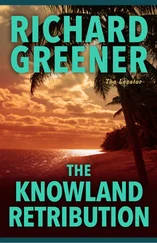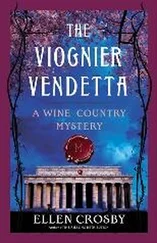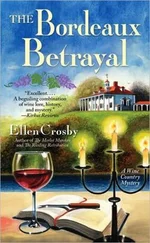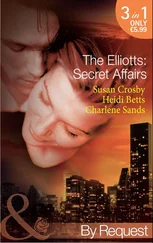Ellen Crosby
The Riesling Retribution
For my sons, Peter, Matt, and Tim
Something of vengeance I had tasted for the first time; as aromatic wine it seemed, on swallowing, warm and racy: its after-flavor, metallic and corroding, gave me a sensation as if I had been poisoned.
—Charlotte Brontë
Be awfully nice to ’em goin’ up because you’re gonna meet ’em all comin’ down.
—Jimmy Durante
We all have a right to our private lives; it’s living a secret life that gets us in trouble. At least, that’s been my experience. Either the house of cards comes crashing down when the lies and deceit finally catch up with us, or we die with our secrets and someone uncovers them after we’re gone. Either way, we break the heart of a loved one, and that’s our legacy.
own a vineyard at the foothills of the Blue Ridge Mountains in Virginia on a five-hundred-acre farm that has been in my family almost as long as this country has existed. Every Montgomery who lived here for the last two centuries is buried in a brick-enclosed cemetery that sits atop a hill near my home and commands a particularly breathtaking view of the mountains. My parents lie in the two newest graves.
Every few weeks I make a point of stopping by the place and always find peace and tranquility there. I spend most of the time at my mother’s grave, leaning against her headstone and talking to her as the clouds drift across the Blue Ridge in a pretty tableau of chiaroscuro. I do right by Leland, too—my father preferred his children to call him by his first name—although I don’t stay long with him or talk much.
They say God gives us families so we don’t have to fight with strangers. My father somehow managed to be both family and stranger to my brother and sister and me. Each time I stare at his polished granite tombstone with its chiseled epitaph—“The acts of this life are the destiny of the next”—an Eastern proverb that seemed more warning than prophecy in Leland’s case—I wonder about the man he was and the layered life he hid from us. Leland had done a good job of keeping secrets about some of the acts of his life, but in the two years since he passed away, so far nothing he had done had altered my destiny, or that of my siblings.
Though that was about to change.
Today’s visit to the cemetery on a sultry late July afternoon was brief. I had picked my mother some fragrant pale pink Renaissance roses from her garden. She planted the bush shortly before she died eight years ago, a few months before my twenty-first birthday, and never saw it bloom. If she had, I know it would have been one of her favorites.
When I had finished, I got back in the two-seater Gator and drove to a remote part of the farm where I’d agreed to let a group of men spend a weekend shooting at one another. That probably sounds sinister, but it’s not. A person can’t tread on a patch of land around here that hasn’t somehow been part of the Civil War, a fact that still eats at plenty of folks. Of all the states that fought in the war, none suffered like we did in Virginia. Gettysburg lasted four horrific days. We had four years of misery.
So when B. J. Hunt, who owned Hunt & Sons Funeral Home, approached me last year and asked if I’d allow Company G of the 8th Virginia, his reenactment unit, to stage the 1861 Battle of Ball’s Bluff on my land, how could I say no? Especially when B.J. said the local battle wasn’t often reenacted, meaning we’d not only draw spectators and participants from all over the country but the vineyard would also get a healthy shot of national publicity.
I am not martial in my interests, nor do I hunt and shoot, unlike my father who was an expert marksman, but I do honor my forebears and our history. The real Ball’s Bluff, now preserved as a national battlefield and a park, is a few miles down the Old Carolina Road at the edge of the Potomac River, and is the site of the third-smallest military cemetery in the United States.
B.J. and his reenactors did not want to fight on hallowed ground, but they did want to stage their event as close to the battlefield as possible, preferably someplace near water. On October 21, 1861, Union soldiers had taken a few small boats across the Potomac from Maryland to Virginia, expecting to find a deserted Confederate camp near the town of Leesburg. What happened instead was a day-long series of skirmishes that ended with the panicked retreat of Federals down the cliffs of Ball’s Bluff into the fast-moving Potomac. The sight of dozens of bloated bodies in blue floating downriver to Washington, as far away as Mount Vernon, so horrified President Lincoln and his Congress that a commission was established to oversee the conduct of the war from then on, forcing Union commanders to answer to a bunch of nonmilitary lawmakers.
Goose Creek, one of the Potomac’s tributaries, runs through the middle of my farm. Though it meanders mostly through woods, the creek also skirts a large field beyond the vines that B.J. said would be an ideal place to hold the reenactment, now scheduled to take place in less than two weeks.
I was a few dozen yards from the field when the Gator, anemic sounding ever since I’d left the cemetery, stalled and died. I turned the key in the ignition and pumped the gas, hearing nothing but dead-sounding clicks. I was about to climb down for a closer look at the engine—though to be honest, I wouldn’t know what I was looking for if it hit me in the face—when the ominous sound of wind rushing through the treetops made me look up. The birds suddenly had gone silent. We were in for a storm. A fast-moving one, too.
The weather forecast hadn’t said anything about a tornado, but there was no mistaking the ropy-looking gray funnel that had materialized out of nowhere on the horizon, spewing debris like dirty smoke. The dust cloud swelling at its base was shaped like an old-fashioned oil lamp, and the twister, rising in the middle, had the furious torque and spin of an angry genie.
As though its appearance was a cue for what came next, a lead-colored wall of clouds descended from the sky like a curtain slamming down on a stage. The wind picked up, twisting tree branches unnaturally until all I could see were the undersides of leaves flashing like millions of silvered coins.
I fished my cell phone out of my pocket and started to call Quinn Santori, my winemaker, until I remembered that he was twenty miles away at a meeting of the winemakers’ roundtable in Delaplane. Instead I hit the speed-dial number for Chance Miller, our new field manager, and heard him say, “Hello, Lucie,” before the display flashed “call lost…searching for service” and went blank. The storm must have knocked out reception from the tower.
Across the field lightning arced the sky like God was throwing down pitchforks. I tossed the phone, now a lightning-magnet, in the Gator’s open glove compartment and started counting. One-Mississippi. I got only to four when the crack of thunder came, sounding like it had split open the earth.
A hard, slanting rain moved in, slapping my shoulder-length hair in my eyes and tearing at my clothes. In my head I heard the litany of warnings television weather reporters shout as they are lashed by rain and wind in some perilous edge-of-the-world location, moments before they bolt for safety when the camera is turned off. Seek shelter immediately! The safest place is the basement of a house! If you do not have a basement, find an interior room and barricade yourself inside! Cover yourself with a mattress or hide behind a piece of furniture! Abandon all cars and mobile homes! They will not protect you! Seek shelter immediately!
Читать дальше












